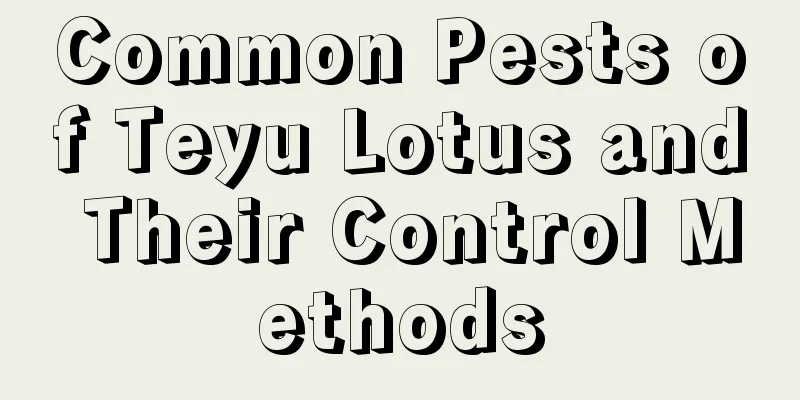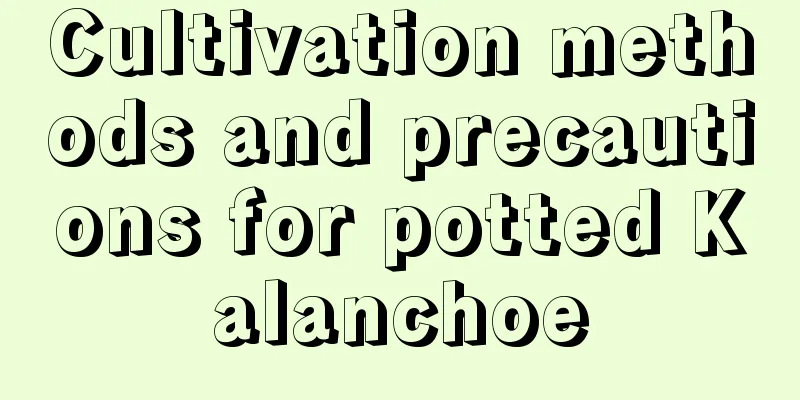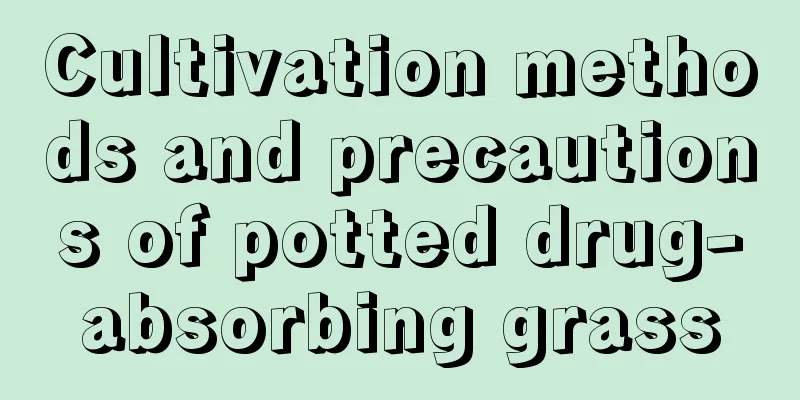What are the cultivation methods and precautions for rose begonia

Growth habits of rose begoniaRose Begonia belongs to the Begoniaceae family. It prefers warm, humid and semi-shaded environment. Because its seeds are relatively small, it is necessary to use the small seed sowing method. When caring for it, it needs sufficient water, which is more conducive to its germination, and it also needs a suitable growth temperature. Rose Begonia cultivation methodWhen caring for rose begonia, it is best to keep the growth temperature between 15-22 degrees. Too high or too low temperature is not conducive to growth. There should be sufficient light environment at ordinary times, and proper shade in summer. After flowering, the dead flowers and leaves should be trimmed in time. Watering methodThe rhizome of Rose Begonia is relatively slender. During the maintenance process, you must pay attention to controlling the amount of watering and maintain the principle of watering when dry. Also, be careful not to water the leaves when watering to avoid rotting of branches and leaves. Fertilization methodDuring the growth process of rose begonia, regular fertilization is very important. It is very sensitive to nutrient deficiency or nutrient excess, so fertilizer should be applied thinly. Some nitrogen fertilizer can be applied during the seedling stage. Pruning methodsWhen the rose begonia is growing, it needs to be pinched in time. This is beneficial to the growth of the plant's side branches and can make the plant look fuller. After pruning, it is best to apply some fungicide in moderation to avoid rot. Precautions for growing rose begoniaRose Begonia is a relatively delicate and sensitive plant flower. During the maintenance process, you must pay attention to watering in moderation and fertilizing reasonably. It is best to use special fertilizer for rose begonia. In addition, after flowering, you must promptly trim the remaining flowers and dead leaves to reduce unnecessary nutrient consumption and strengthen maintenance management. |
<<: When is the best season to plant yam?
Recommend
When is the best time to repot hibiscus?
Hibiscus flower repotting time Hibiscus has a hig...
What are the cultivation methods and precautions of small-leafed green radish
Introduction of small leaf green radish The small...
How to care for Monstera
1. Breeding soil When caring for Monstera, you sh...
Differences between Nepenthes and Drosera
1. Different plant types Nepenthes is a plant of ...
When is the best season for rose cuttings (the best season and method for rose cuttings)
When is the best time to take cuttings of roses? ...
How often should I water my lucky bamboo cage?
How often should I water the lucky bamboo cage? T...
Is it too late to plant shepherd's purse in November (How to plant shepherd's purse in this season)
The light and temperature in autumn are more suit...
How to water hibiscus?
Hibiscus life characteristics: Hibiscus has a par...
Does the rose like the sun?
Rose likes the sun Rose likes the sun. It is a su...
How cannas survive the winter
How to Overwinter Canna - Direct Burial How shoul...
Characteristics and functions of the paulownia tree
1. Characteristics of the sycamore tree The paulo...
How to grow Ranunculus
temperature Anemone likes a cool semi-shady envir...
How to choose good seeds and seedlings for growing vegetables on the balcony
Learn to distinguish good seedlings There are two...
When is the right time to sow astragalus
Suitable time for sowing Chinese milk vetch Astra...
How to prune the money tree
When to prune the money tree The pruning of money...









